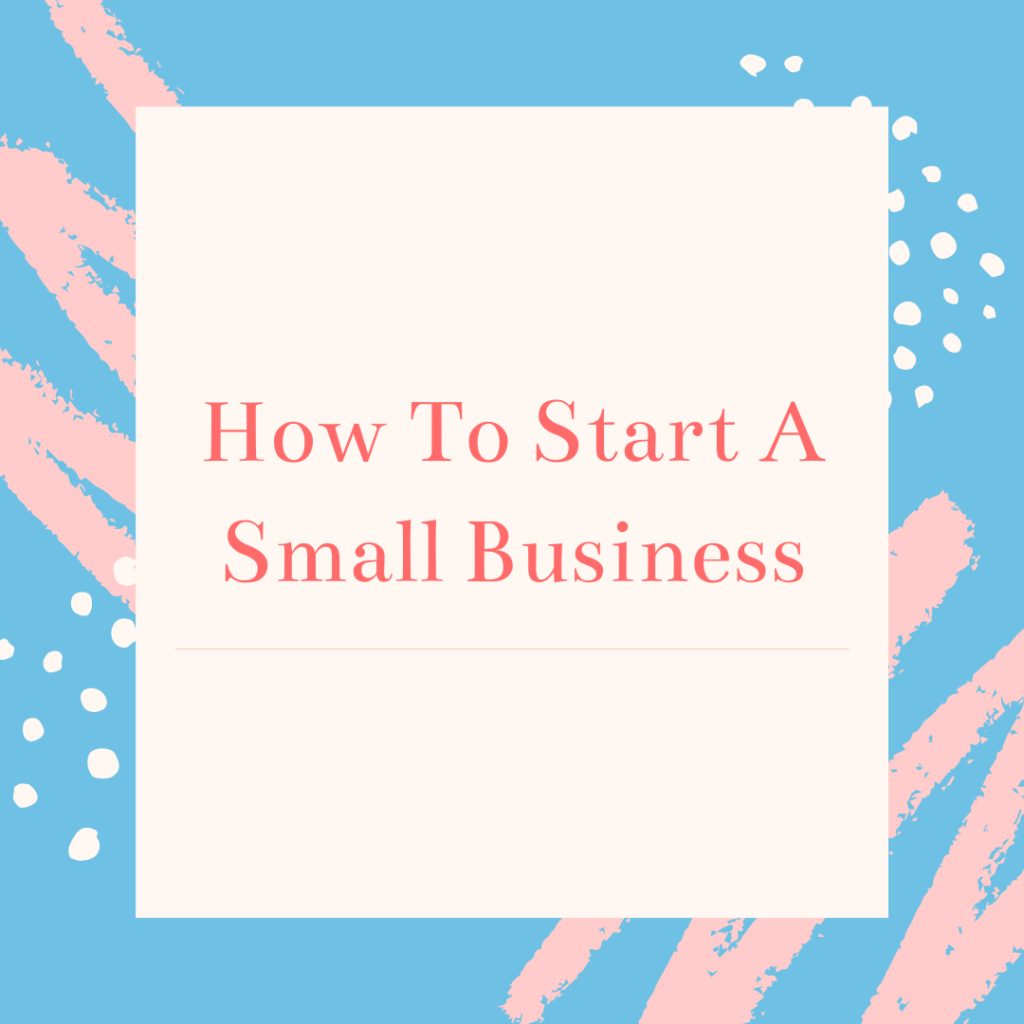- Find a Business Idea
- Registration (for tax purposes)
- Licensure & permittals
- Insurance
- Copyrights, patents, Trademarks
- Make a plan
- Carve out your cyber space
- Get Financing (choose bank)
- Carve out your physical space

SELF-EVALUATION
Why do you want to start a business??
It’s a most basic question, but your answer can serve as a guide to the kind of business you want to start.
It is vital that you are certain you want to start a business; A lot of time and money has been wasted by would-be entrepreneurs that thought they wanted to be small business owners: they weren’t privy to opening a small business or running a small business. There’s no such thing as a “small business day” and we’d hate for any of our readers to experience that frustration. Here we’ll talk about how to start a small business.
You may want a complete step away from traditional employment via a career change, or maybe you’re stepping away from a firm to continue your career under your own name.
You may be ready for a side hustle in an effort to increase your income, or to transition toward converting said side hustle into full-time self-employment.
Next, ask yourself these questions to help you figure out the type of business you should start, and if you have what it takes:
- What is your skillset/expertise?
- Funding:
- How much capital will you need?
- How much capital are you bringing?
- How much capital can you continue to bring?
- Lifestyle: Are you truly ready to do the necessary building to live the lifestyle you want?
Whatever your reason, we encourage and congratulate those who will make a true attempt at building their own thing.

1. FIND A BUSINESS IDEA
Think of a business idea.
If you’re thinking about starting a small business from home, you likely already have an idea of what you want to sell, or at least the market you want to enter. If so, congratulations!! Pass “go” and collect $200 (Monopoly.)
If not, start your search for a good idea: Research ideas online (cool ones here), or use any possible channels you have available.
- Do you have a business idea that isn’t completely new? When you support small business, it’s like a search for existing companies in your chosen industry. Shop small business: these are some of the best small businesses to start, some of the best best small business ideas.
Use the better/cheaper/faster approach. Investigate the current marketplace and see if you can find a way to get in by being better/cheaper/faster.
If you think you can deliver something other companies don’t (or deliver the same thing, but faster/cheaper), proceed to create a business plan.
- Solve a problem. Take away clients’ pains and they’ll thank you for it.
- Forecast: can you anticipate what technology or advancement is coming, and how it will change the current landscape? Get ahead of the curve.
- Franchise. All you need is a good location and the means to fund your operation. The concept, brand following, and business model are already in place. Plus the corporation doesn’t want any of it’s franchisees to fail, so you’ll most likely get the necessary support to succeed, provided you can afford it.
If the idea isn’t something there’s a market for, then keep looking.
Once you’re confident in the idea:
- Register the business with all necessary agencies (for tax purposes)
- Secure licensure & permittals
- Purchase insurance
- Solidify all necessary copyrights, patents, trademarks

2. MAKE YOUR PLAN
Here’s the perfect “how to” guide!!
And here’s the perfect template!!

3. CARVE OUT YOUR DIGITAL SPACE
Online Identity.
Everything and everyone is online. Potential clients access and search the internet for what they want and need. Potential vendors, lenders, and investors will look at your website as part of their due diligence.
But understand that your cyber identity starts with your business’s email address and a domain name. Consider WordPress to choose your domain name, email address, web hosting, and website design.
When building your digital persona always make sure to keep consistency in your small business branding, message, and your product/service offerings.
Learn to use today’s best digital tools without the frustration: Master Online Tools offers a massive catalog of trainings that teach you to extract the power and productivity from scores of digital tools and services. We also get you massive discounts from partner companies so you can run your business cheaper.

4. Get Financing
- Determine how much funding you’ll need: you may be able to fund your business yourself with self-funding or what is called bootstrapping.
An option for entrepreneurs who have built up a significant amount of retirement savings and want to tap into the funds without paying income taxes or early withdrawal penalties can use rollover business startups (ROBS) financing. This lets the retiree rollover eligible retirement accounts to use as small business startup funding, however the ROBS method jeopardizes your retirement if your business fails, plus it generally includes high transaction costs.
- Crowdfund. Instead of paying back your donors, you give them gifts.
- Or, equityfund: exchange equity ownership to your pool of investors who agree to finance your small business. With new securities regulations, small buisness owners reach out to mom-and-pop investors and not just accredited investors – this has become an increasingly popular option of late.
- Get a loan (small business or personal,) or line of credit.
- Research and apply for available grants. They’re not always easy to get, but the free capital could prove to be worth the hard work for new entrepreneurs.
For example there are small-business grants for women. Also, if you served in the U.S. military you can access grants available for veterans.
Then determine where and with whom you’ll be banking with; Sometimes this may be with your lender, credit union, or an online institution. Sometimes it may be a combination depending on the type, use, and amounts of funding you’re working with.

5. CARVE OUT YOUR PHYSICAL SPACE
In-person Identity.
Marketing for small business starts with your business Cards: necessary, handy, convenient, easy, and professional. Definitely old school, but still widely used and critical to a new business looking to establish its identity and let the world know of its existence. There are many online business card services, some offer quality cards for cheap.
Marketing ideas for small business with your branding: this could be gear that you wear, supplies you use and sell and give away, or other tangible objects featuring your logo on it. The point is to have your logo on all your stuff to build a brand identity and make potential customers and vendors aware of your products/services.
Master Online Tools has partnered with some of the world’s leading companies to give you amazing discounts on their in-house products and services.

CONGRATULATIONS, again
We’re glad you read this starting a business checklist!!
Here we talked about how to start a small business.
We hope you’re ready to start small business, as we serve to help people start their businesses.
If you have any questions about small biz, if you’re ready for a small business start up, or wonder if you should, be sure to hit us up.
Remember this small business tip: Share and share alike!! Promote small business…

